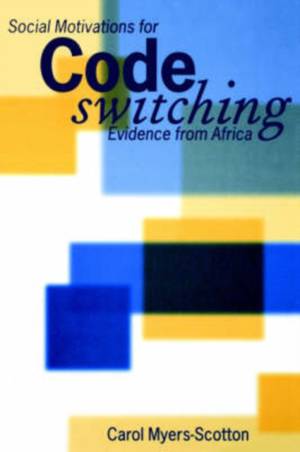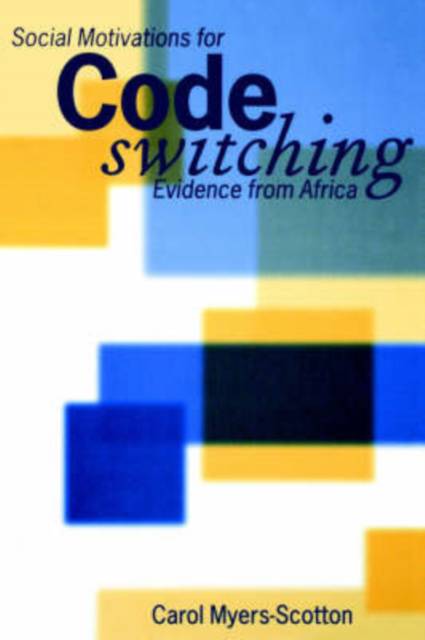
Bedankt voor het vertrouwen het afgelopen jaar! Om jou te bedanken bieden we GRATIS verzending (in België) aan op alles gedurende de hele maand januari.
- Afhalen na 1 uur in een winkel met voorraad
- In januari gratis thuislevering in België
- Ruim aanbod met 7 miljoen producten
Bedankt voor het vertrouwen het afgelopen jaar! Om jou te bedanken bieden we GRATIS verzending (in België) aan op alles gedurende de hele maand januari.
- Afhalen na 1 uur in een winkel met voorraad
- In januari gratis thuislevering in België
- Ruim aanbod met 7 miljoen producten
Zoeken
Omschrijving
This study focuses on the social motivations for codeswitching, that is, the use of two or more linguistic varieties in the same conversation. Using data from multilingual African contexts (mostly from conversations studied in Kenya), Carol Myers-Scotton advances a theoretical argument which aims at a general explanation of these motivations. She treats codeswitching as a type of skilled performance, not as the "alternative strategy" of a person who cannot carry on a conversation in the language in which it began. When engaging in codeswitching, speakers exploit the socio-psychological values which have come to be associated with different linguistic varieties in a specific speech community: they switch codes in order to negotiate a change in social distance between themselves and other participants in the conversation, conveying this negotiation through the choice of a different code. Switching between languages, Myers-Scotton suggests, has a good deal in common with making different stylistic choices within the same language: it is as if bilingual and multilingual speakers have an additional style at their command when they engage in codeswitching between different languages.
Specificaties
Betrokkenen
- Auteur(s):
- Uitgeverij:
Inhoud
- Aantal bladzijden:
- 190
- Taal:
- Engels
- Reeks:
Eigenschappen
- Productcode (EAN):
- 9780198239239
- Verschijningsdatum:
- 28/09/1995
- Uitvoering:
- Paperback
- Formaat:
- Trade paperback (VS)
- Afmetingen:
- 156 mm x 234 mm
- Gewicht:
- 276 g

Alleen bij Standaard Boekhandel
+ 264 punten op je klantenkaart van Standaard Boekhandel
Beoordelingen
We publiceren alleen reviews die voldoen aan de voorwaarden voor reviews. Bekijk onze voorwaarden voor reviews.









